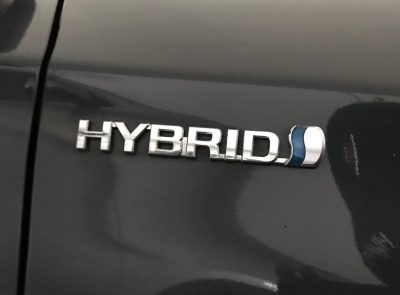By Mark Kozemko, Johnson College’s Automotive Technology Program Director. Originally published in the March 26, 2021 edition of the Valley Advantage.https://www.thevalleyadvantage.com/community-columns/from-headlights-to-taillights-are-hybrids-worth-the-hype/article_8c33a70b-c359-5f31-a50b-964079f2dd55.html
One of the most pressing issues in our society and the world is finding ways to save the environment. One way the automotive industry is helping is by producing more fuel-efficient and alternate fuel vehicles. For our conversation today, we’re going to focus on one type of fuel-efficient vehicle, the hybrid.
Before we get to the questions, let’s define the word hybrid. It means something that is made by combining two or more different things to make one thing. Since I’m a dog lover, please allow me to use this analogy. Golden doodles are considered a hybrid dog breed because a breeder had a golden retriever mate with a poodle. Thus, the extremely popular golden doodle breed was born.
When we say a vehicle is a hybrid, we’re referring to a vehicle that has an internal combustion engine/gasoline engine and an electric motor working together. This allows the vehicle to run economically and helps lower the vehicle’s emissions, which is better for the environment
Now that we know what a hybrid vehicle is, let’s get to some of the questions that were sent in on the subject.
Our first question is, “Will I see a substantial saving on fuel if I drive a hybrid?”
Yes, you will save money because the hybrid engine has an increased fuel mileage compared to a gasoline engine vehicle. It also releases less emissions. According to https://www.fueleconomy.gov/ the estimated miles per gallon on a 2017 Toyota Prius 1.8L 4 cylinder was 52mpg highway and 50mpg city and the estimated miles per gallon of a 2018 Toyota Camry Hybrid 2.5L 4 cylinder was the same at 52mgp highway and 50mpg city. In this technician’s opinion, that’s pretty good fuel mileage. A standard 2018 gasoline only 2.5L 4 cylinder Camry fuel mileage compares at 32mpg highway and 28mpg city.
Our second question is, “Does a hybrid vehicle have to be plugged in to charge the battery?”
Even though the electric motor in a hybrid vehicle runs on electricity stored in the vehicle’s battery, it does not get plugged in for recharging. Hybrid vehicles have what is called a regenerative braking system, which means when brakes are applied, the kinetic energy created from braking is used to recharge the battery. Also, whenever the gasoline engine is running, the battery is being recharged. If necessary, you can bring the 12-volt system battery back to a fully charged state by using a typical automobile battery charger.
Our third question is, “Do hybrid vehicles cost more to maintain?”
The cost to maintain a hybrid is roughly the same or slightly lower than repairing or maintaining a regular vehicle. However, there was a time when technicians thought hybrid vehicles were very “scary” to be around, which caused service costs to be much higher. They thought this because when hybrids were new, technicians who weren’t working for the manufacturer producing them had little to no training about the technology. Now, with more manufacturers producing hybrids, they’re producing more well-trained technicians who follow proper procedures. All of this allows technicians to safely and properly perform routine maintenance and repairs without being afraid of the technology.
Our fourth question is, “I hear about the Toyota Prius all the time, but what other hybrid vehicles are available?”
While the Prius was one of the first hybrids introduced and continues to be on top of the best hybrids lists, other manufacturers have and continue to produce hybrids. There are now over 20 different models. Hyundai has the Ioniq. Kia has the Niro. In addition to the Prius, Toyota has three other models: the Prius Prime, Corolla and Camry. There are also hybrid SUVs available from Mitsubishi, Lexus, BMW, Acura and Volvo.
Our last question is, “Is it worth it to purchase a hybrid vehicle?”
For many people in our area, the answer is, probably not. In most cases, hybrids end up costing you more money than buying a gas-powered car. The purchase price of a hybrid is higher because of the technology used to build the vehicle. Yes, you may receive a tax break when you purchase a hybrid but then you have higher insurance rates because of the cost of the vehicle. There is also a performance issue. Hybrids are usually quite slow and may create dangerous situations, especially during highway driving. They also have diminished fuel efficiency in the cold weather and we all know how cold winters can be in Northeastern Pennsylvania.
Deciding to purchase a hybrid vehicle should be done the same way you decide on which gasoline vehicle to buy. You have to research all the pros and cons, not just the amount of money you might be able to save at the pump if you buy a hybrid.
At the end of the day, you have to like what you’re buying and feel safe when you and your golden doodle head out on the open road.

